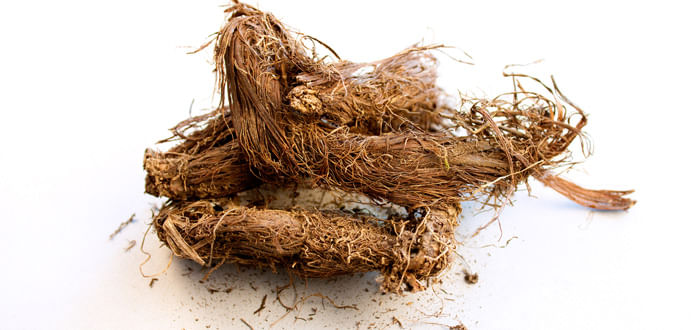Jatamansi-A brilliant herb for mental disorders
Famous in Ayurveda as a herb to combat the effects of day-to-day stress, Jatamansi has the property of enhancing the body's innate ability to sleep well. It is considered a divine plant in Ayurveda and has traditionally been used as an air purifier. The Charaka Samhita recommends it highly for insomnia, mental instability and to enhance memory. It is said to promote growth and maintain the color of hair. It is said to be especially useful in calming the aggressive conduct of hyperactive and otherwise disturbed children. True Spikenard, the Biblical Spikenard, a strong sedative related to Valerian, can relax mental over-stimulation, promote healthy sleep and calm the overly active mind, and its roots are a well know tranquilizer, an infusion of the root often being given in hysteria, heart palpitations, menopause, and various nervous diseases.
In terms of Jatamansi's energetics, its medicinally useful rhizome (root) and the root's oil are bitter, astringent and sweet in taste, with a cooling virya and a pungent vipaka. Its doshic signature is KPV.
Jatamansi enters into the rakta and majja dhatus and the rasavaha and raktavaha, anavaha, majjavaha, pranavaha and shukravaha srotam, and counteracts the effects of stress, having both antispasmodic and generally calmative actions.
Among its many indications it has been found useful in the treatment of digestive diseases generally, flatulence, hypercholesterolemia, heart palpitations, the effects of nervous and emotional upset, hypochondria (somatizing disorder), jaundice, kidney stones, respiratory diseases generally, skin conditions generally, typhoid, seminal debility, spasmodic hysterical states, epilepsy, convulsions, tension headache, insomnia, ADHD, febrile delirium, delirium tremens and senile dementia. Jatamansi's pharmacologic activities include those of an analgesic, both a stimulant and a sedative (a surprising combination of seemingly contradictory properties, quite like ashwagandha with which it is often found in formulation), antiarrhythmic, hypotensive, calmative, tonic, antispasmodic, diaphoretic, an alternative for syphilitic, cutaneous and rheumatic cases, a promoter of hair growth, and an antioxidant.
Its use is contraindicated in pregnancy, and daily dosage varies from 3 to 5 grams daily of the churna.



+1.svg)
